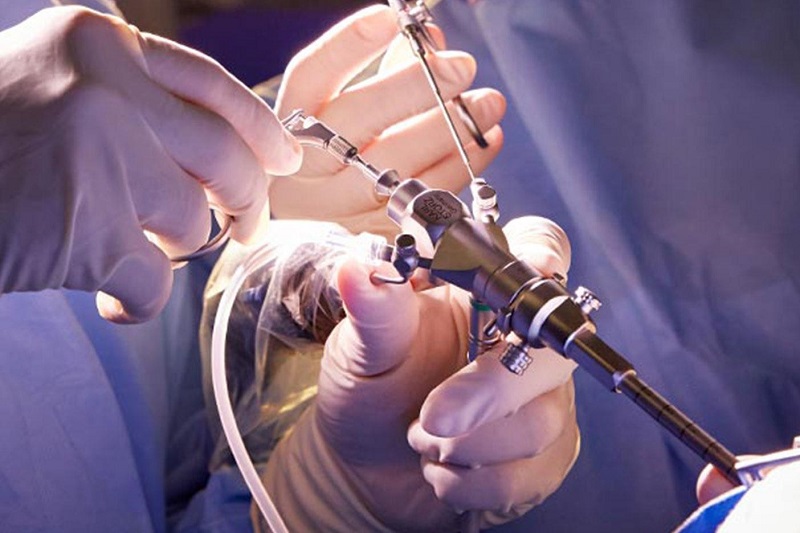Neuroendoscopy: A Comprehensive Guide to Minimally Invasive Neurosurgery
Neuroendoscopy is a minimally invasive surgical technique that has revolutionized the field of neurosurgery. By using a thin, lighted tube with a camera, neurosurgeons can access and treat brain and spinal cord conditions through small incisions. This approach offers significant advantages over traditional open surgery, including reduced pain, faster recovery, and improved outcomes.
The Benefits of Neuroendoscopy
Neuroendoscopy offers several benefits over traditional open surgery:
- Smaller Incisions Minimizing scarring and reducing the risk of infection.
- Faster Recovery Shorter hospital stays and quicker return to normal activities.
- Less Pain and Discomfort Reduced pain and discomfort after surgery.
- Reduced Risk of Complications Lower risk of complications compared to open surgery.
- Improved Outcomes Often resulting in better functional outcomes and quality of life.
Common Neurological Conditions Treated with Neuroendoscopy
Neuroendoscopy can be used to treat a wide range of neurological conditions, including:
- Brain Tumors Benign or malignant tumors located within the brain.
- Spinal Cord Disorders Conditions affecting the spinal cord, such as herniated discs or spinal stenosis.
- Hydrocephalus A condition characterized by excessive fluid buildup in the brain.
- Pituitary Tumors Tumors located at the base of the brain that can affect hormone production.
- Functional Disorders Conditions affecting movement, sensation, or behavior, such as Parkinson’s disease or epilepsy.
Neuroendoscopic Techniques
Neurosurgeons use a variety of endoscopic techniques, depending on the specific condition and patient needs:
- Endoscopic Ventriculostomy A procedure to drain excess cerebrospinal fluid from the brain.
- Endoscopic Third Ventriculostomy A procedure to create an opening in the third ventricle of the brain to improve cerebrospinal fluid flow.
- Endoscopic Endonasal Surgery A procedure to access the brain through the nose.
- Endoscopic Spine Surgery A procedure to treat spinal conditions, such as herniated discs or spinal stenosis.
The Role of Neurosurgeons in Neuroendoscopy
Neurosurgeons play a crucial role in planning and performing neuroendoscopic procedures. They have specialized training and expertise in using advanced endoscopic techniques.
- Pre-Operative Planning Conducting thorough assessments and planning the surgical procedure.
- Performing Surgery Using endoscopic techniques to access and treat the affected area.
- Post-Operative Care Monitoring patients during and after surgery to ensure a successful recovery.
Recovery After Neuroendoscopic Surgery
Recovery from neuroendoscopic surgery is typically faster than traditional open surgery. However, it is important to follow your surgeon’s instructions and attend physical therapy sessions to ensure a successful recovery.
- Hospital Stay The length of hospital stay will vary depending on the procedure and your individual recovery.
- Rehabilitation Physical therapy, occupational therapy, and speech therapy may be necessary to regain function and independence.
- Follow-Up Care Regular follow-up appointments with your neurosurgeon are essential for monitoring your progress and addressing any concerns.
Choosing a Specialty Care Clinic for Neuroendoscopy
Selecting the right specialty care clinic for neuroendoscopy is crucial for a successful outcome. Consider the following factors:
- Expertise Look for a clinic with experienced neurosurgeons who specialize in neuroendoscopy.
- Technology Ensure the clinic has access to state-of-the-art surgical equipment and technology.
- Patient Reviews Read reviews from other patients to get a sense of the clinic’s quality of care.
- Insurance Coverage Check if your insurance plan covers neuroendoscopic procedures.
- Location and Accessibility Consider the clinic’s location and accessibility, especially if you require frequent follow-up care.
Neurosurgeons play a crucial role in the field of neuroendoscopy, providing expert care and utilizing advanced techniques to treat a wide range of neurological conditions. By choosing a reputable specialty care clinic and working with experienced neurosurgeons, individuals can benefit from the advantages of minimally invasive brain surgery, including reduced pain, faster recovery, and improved outcomes. Neuroendoscopy continues to be a rapidly evolving field, with ongoing advancements in technology and surgical techniques.


